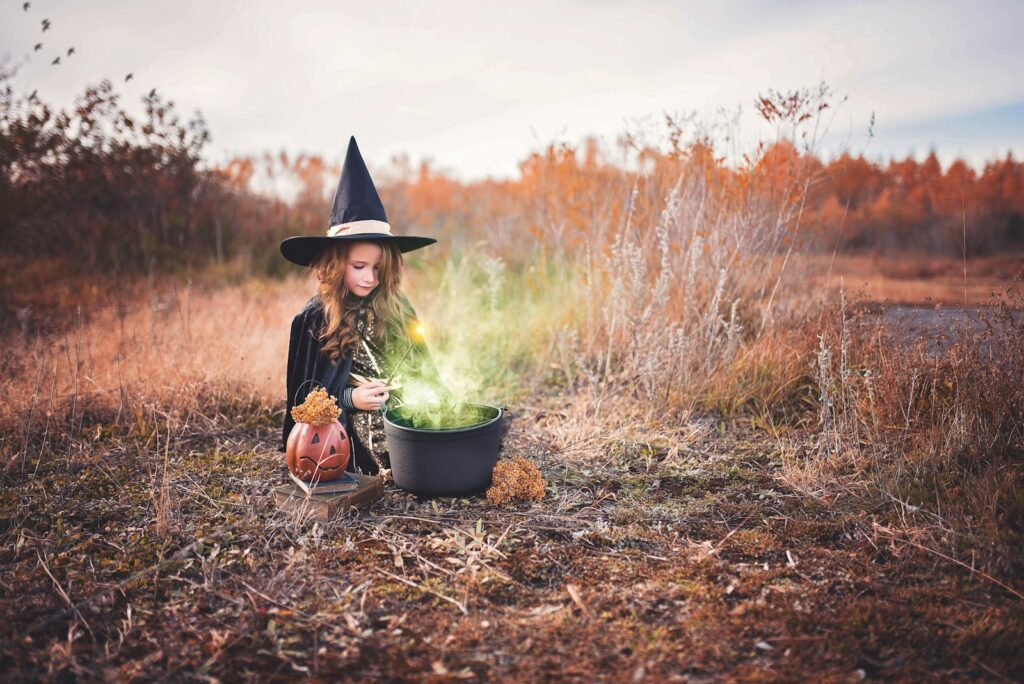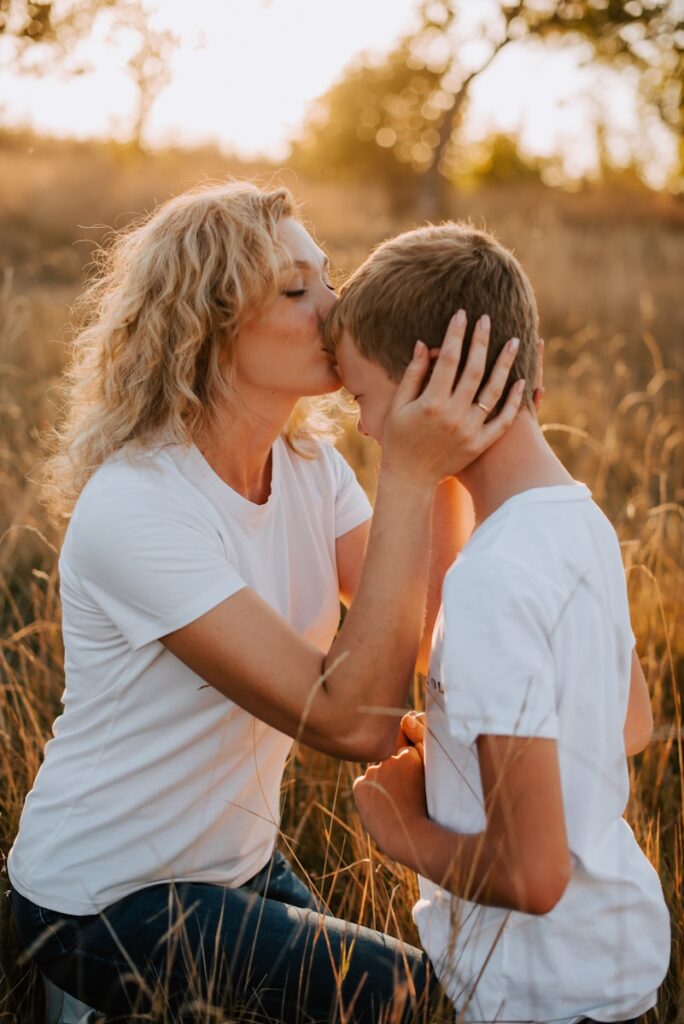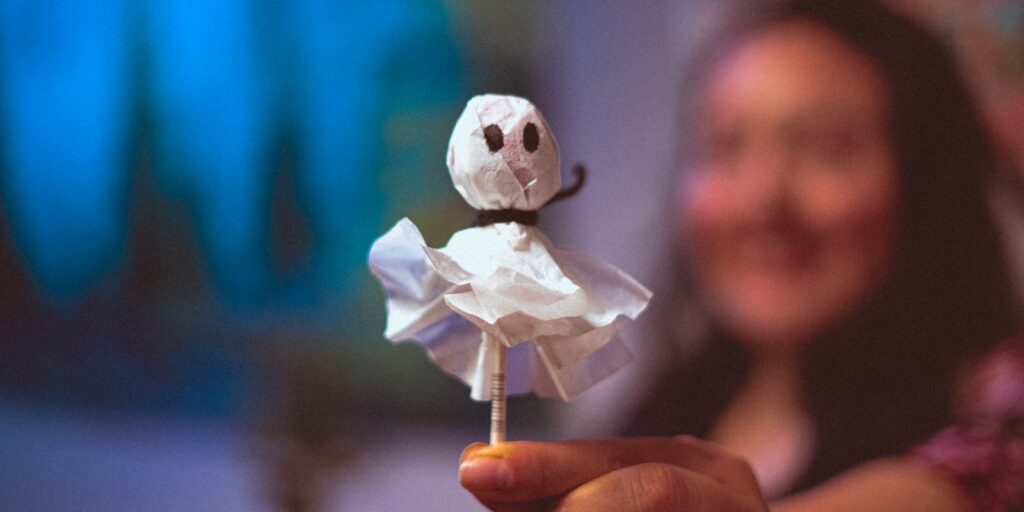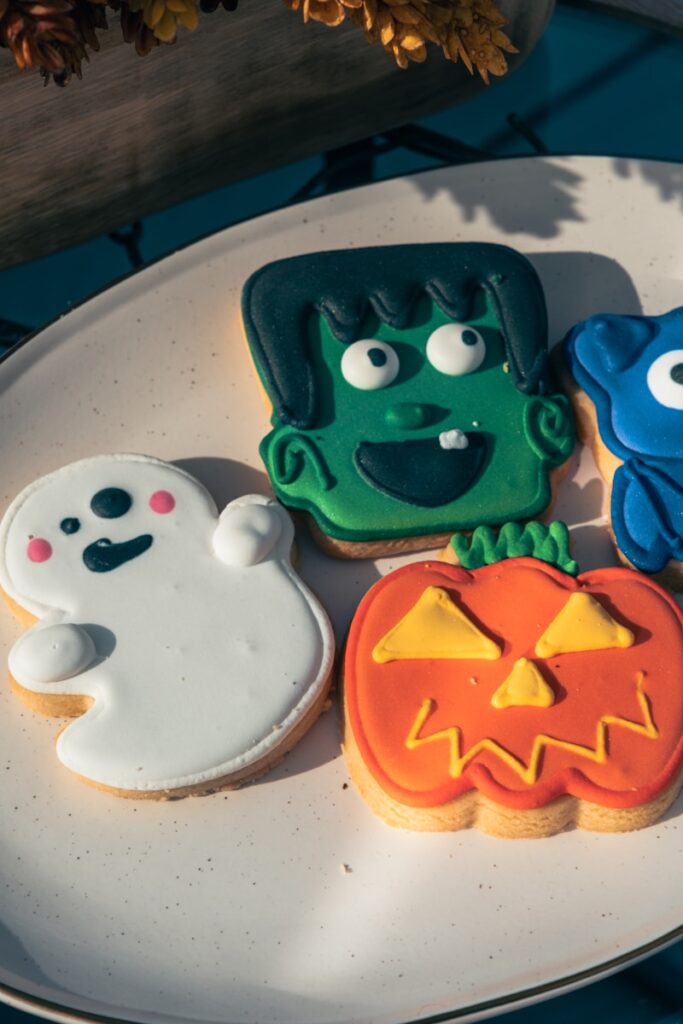
You imagined your child racing from house to house, candy bucket in hand, laughing with friends under the glow of porch lights. Instead, they’re clinging to you, covering their ears, or insisting they don’t want to go. If Halloween feels more stressful than fun, you’re definitely not the only parent feeling that way – and there’s nothing wrong with your child for struggling.
For many anxious or sensitive kids, Halloween can be a lot. It’s loud, unpredictable, and full of surprises. People jump out of bushes. Decorations make creepy noises. Costumes change how people look and sound. Even the excitement of candy and crowds can overwhelm their nervous systems.
And while other kids seem to love being scared, your child might genuinely feel unsafe – their body reacting as if those fake ghosts and monsters are real threats. That doesn’t mean they’re overreacting; it means their brain is doing what it’s designed to do: protect them.
🧠 Why Halloween Can Feel Hard

Halloween combines many common anxiety triggers:
- Unpredictability: Kids don’t always know what to expect when approaching a decorated house or event.
- Sensory overload: Flashing lights, loud sounds, itchy costumes, and sugar crashes can all pile up.
- Social pressure: Costumes, parties, and trick-or-treating can feel like performances.
- Darkness and separation: For younger kids, being out after dark or walking ahead without a parent can spike fear.
Even if your child wants to join in, their anxiety can take the wheel. That can leave parents feeling confused, disappointed, or even guilty – like you’re doing something wrong. You’re not. You’re just parenting a child whose nervous system experiences the world differently.
You can learn more about anxiety in children from the Child Mind Institute, which offers practical tips for supporting kids through challenging experiences.
💬 How to Support Your Child (and Yourself)

- Prepare ahead: Preview what the day or evening will look like. Look at pictures of costumes or decorations together. Visit familiar houses before Halloween night. The more predictability you can offer, the safer your child will feel.
- Give them choices: Maybe they’d rather hand out candy, go to one house, or wear a cozy hoodie instead of a costume. Letting them have control reduces anxiety and helps them feel confident.
- Start small: You don’t have to go all-in. A quick loop around the block, a school parade, or a low-key party can be enough. Success builds gradually, not all at once.
- Focus on comfort: Choose soft costumes, avoid masks if they feel claustrophobic, and take breaks when needed. Bring headphones, fidgets, or familiar comfort items.
- Model calm and flexibility: If things go off plan, take a breath. Your calm signals safety. Saying something like, “It’s okay – we can head home early,” teaches your child that their needs matter more than appearances.
The Anxiety & Depression Association of America has strategies for helping children manage anxiety triggers and stay calm in overwhelming situations.
🎃 Redefine “Fun”

There’s no rule that says Halloween must include haunted houses or trick-or-treating. Maybe your family decorates pumpkins, bakes spooky treats, or watches It’s the Great Pumpkin, Charlie Brown with popcorn and pajamas.
The goal isn’t to push through fear – it’s to help your child learn they can feel safe and connected in ways that fit them.
For additional family-focused guidance, HealthyChildren.org (from the American Academy of Pediatrics) offers tips on keeping holidays safe and enjoyable for all children.
💛 A Gentle Reminder
If your child’s anxiety feels bigger than Halloween – if worries, avoidance, or meltdowns are showing up often – it might be a good time to reach out for extra support. With the right tools and understanding, kids can learn to face fears at their own pace and rediscover joy in moments that once felt overwhelming.
You don’t have to do it alone – and neither do they.
If your child’s anxiety feels bigger than you can manage alone, help is available. At Anxiety Wellness Center of Chicagoland, Dr. Bauer specializes in evidence-based therapy for children and teens. Reach out today to learn how she can support your family in building confidence and calm.
HalloweenAnxiety #AnxiousKids #ParentingTips #ChildAnxiety #MentalHealthAwareness #GentleParenting #FamilyWellness #CalmHalloween #SpookySeason #Halloween2025
